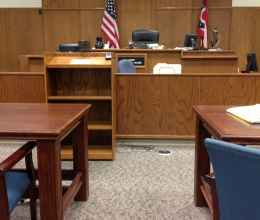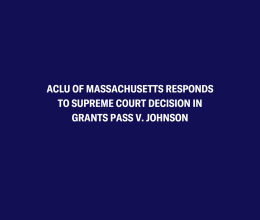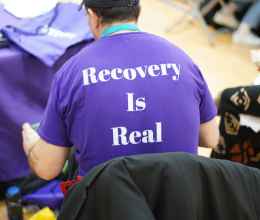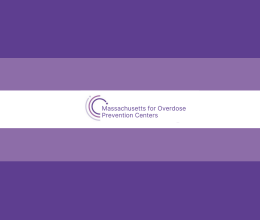Chinese philosopher Lao Tzu once said “A journey of a thousand miles begins with a single step.” On January 6, the Massachusetts House of Representatives took a first step toward dismantling our failed “war on drugs.”
Over the years, federal and state lawmakers have enacted harsh laws intended to send a powerful message to those involved in illegal drug trade. Many of those laws have had collateral consequences – destroying the lives of individuals, families, and entire communities.
In one egregious example, federal lawmakers enacted a law in 1989 that required states to suspend drivers’ licenses for people convicted of drug offenses for up to five years, even where the offense was unrelated to driving. States that did not comply would risk losing federal highway funds unless they formally opted out.
The drug war has had countless casualties. Over the years, we have learned about the overwhelming number of individuals convicted of drug distribution who were, in fact, suffering from addiction and would have benefited from treatment. We have learned about the gross racial disparities in convictions and sentencing that have disproportionately filled U.S. jails and prisons with Black and Latino women and men. We have also learned about the insurmountable obstacles created by collateral consequences like license suspensions and fines.
Yesterday, the Massachusetts House of Representatives voted to finally opt out of the law that suspends drivers’ licenses for those convicted of drug offenses. This step in the right direction is only hampered by an amendment that limits who will benefit from the repeal. The Massachusetts Senate passed the bill in September, so it will likely need to go to a conference committee to reconcile the two. Hopefully, the final version won’t have the same restrictions. From there it will head to Governor Baker’s desk. Baker has indicated his agreement to the principles of the bill but noted that “the devil is always in the details.”
The impact of this misguided law has certainly been devilish. Each year 7,000 people in Massachusetts lose their license for up to five years because of this outdated statute, sometimes without receiving notice. They face a $500 fine per offense. And each year approximately 700 people affected by this law are rearrested for driving without a license, placing them back in the criminal justice system. Given that 80% of all workers in Massachusetts rely on a motor vehicle to commute to work it seems downright diabolical to maintain the status quo.
Massachusetts is one of only 16 states, and the only New England state, that has maintained a policy of automatic license suspension for non-driving offenses. It is time to abandon this failed law and begin to focus on helping the victims of the war on drugs successfully reintegrate into society.
Only 999 steps to go.
Rahsaan D. Hall directs the Racial Justice Program of the ACLU of Massachusetts.





